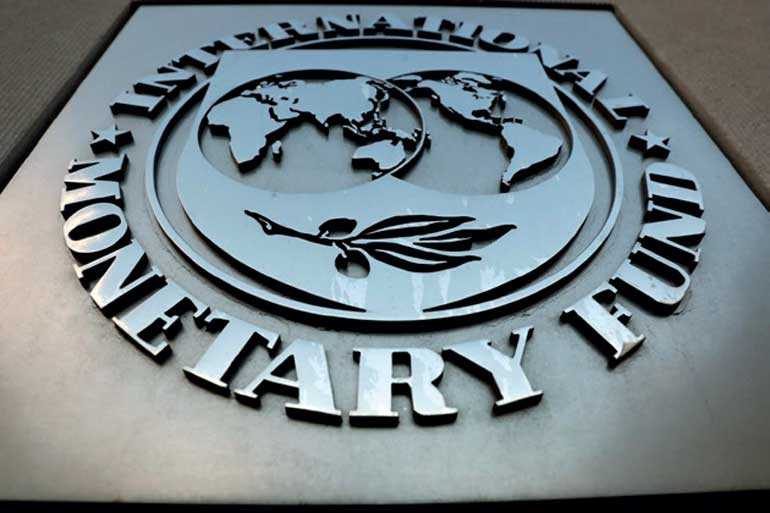Monday Feb 23, 2026
Monday Feb 23, 2026
Wednesday, 1 April 2020 01:01 - - {{hitsCtrl.values.hits}}

The International Monetary Fund (IMF) logo is seen outside the headquarters building in Washington - Reuters
Washington (Reuters): Some countries’ banking systems might have to be recapitalised or even restructured if their economies are severely damaged by prolonged disruption from the coronavirus outbreak, officials at the International Monetary Fund said on Tuesday.
“Pressure on the banking system is growing and higher defaults on debt are imminent. And many now expect a shock to the financial sector similar in magnitude to the 2008 crisis,” Tobias Adrian, the director of the IMF’s monetary and capital markets department, and Aditya Narain, the deputy director of the department, wrote in a blog post on Tuesday.
While the IMF did not specify which country’s banking systems are most vulnerable, the warning from the world’s top multilateral rescue fund marks a striking departure in tone from other leading regulators and bank chief executives, particularly in the United States, who have said lenders are robust enough to withstand the unfolding economic crisis.
Rules introduced following the 2008 global financial crisis have added hundreds of billions of dollars of extra capital and liquidity to the global banking system, arming lenders with ample reserves to continue lending to consumers and to honour multi-billion dollar corporate credit lines, they have said.
But on Tuesday, the IMF hinted that in some regions those reserves may not be sufficient to withstand what looks increasingly to be a prolonged economic crisis, with governments in recent days warning that widescale lockdowns aimed at mitigating the spread of the virus may continue for months.
“It might get worse ... Under more severely strained circumstances, we will have to rethink our playbook substantially. Some banking systems might have to be recapitalised or even restructured,” Adrian and Narain wrote, adding that the IMF is willing to assist under such circumstances.
They listed a number of measures regulators around the world should take to mitigate the adverse effects on banking systems, including suspending new rule-making, encouraging loan modifications, urging banks to use their liquidity reserves and engaging in more broadly constant and clear communication with the industry - measures many regulators in the United States and Europe are already taking.
As with the last financial crisis, global coordination among regulators and governments is also “imperative,” they warned, echoing worries from some global banks that emergency measures to shore up banking systems in individual countries could erode global standards critical for their businesses.
“Preserving the integrity of the international framework will be crucial for the credibility and integrity of the global financial system,” they wrote.